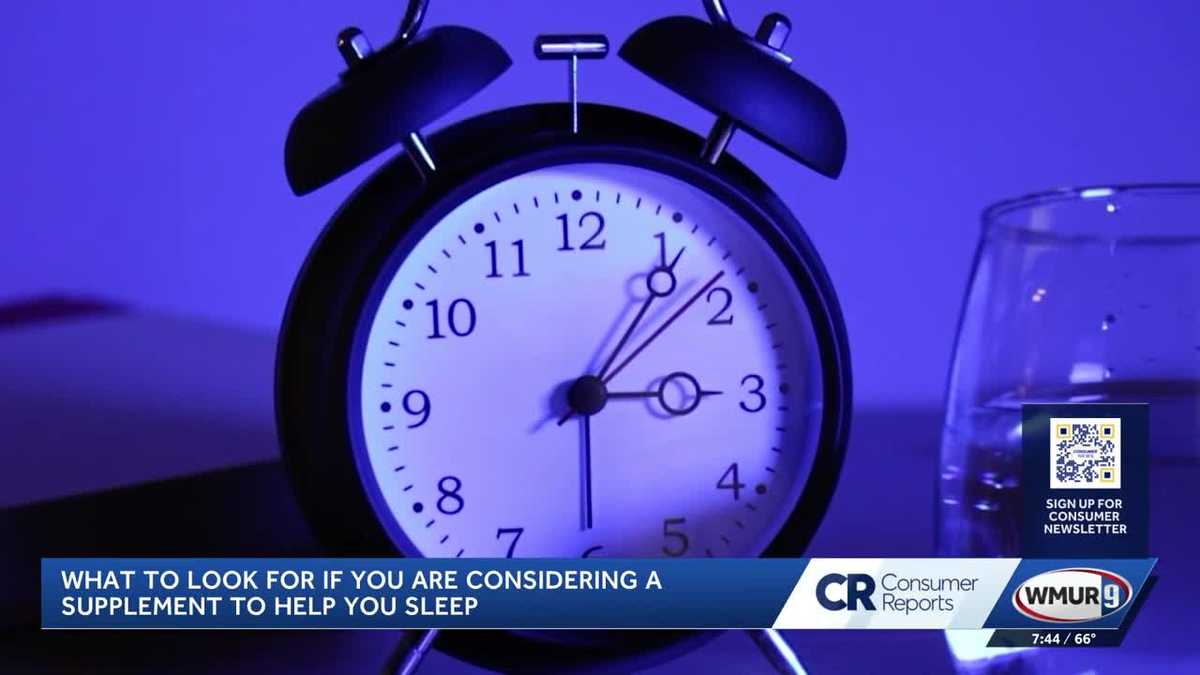If you have trouble sleeping, you are not alone. According to a nationally representative Consumer Reports survey, only 43 percent of Americans would describe their sleep quality as good or very good. Consumer Reports explores if supplements could be the answer.”If you’re consistently losing sleep, studies have shown that it can wreak havoc on your body and increase your risks for anxiety and depression,” Kevin Loria, of Consumer Reports, said.If you’re looking into supplements, you’re not alone. According to the Consumer Reports survey, about 1 in 6 Americans used dietary or natural supplements in the past year to help them sleep better.Unlike sleep medications, which are prescribed by a doctor, sleep supplements can be found over the counter. Store shelves are stocked with pills, teas and tonics claiming to help you sleep. >> Download the free WMUR app to get updates on the go: Apple | Google Play > Subscribe to WMUR’s YouTube channel
MANCHESTER, N.H. —
If you have trouble sleeping, you are not alone. According to a nationally representative Consumer Reports survey, only 43 percent of Americans would describe their sleep quality as good or very good.
Consumer Reports explores if supplements could be the answer.
“If you’re consistently losing sleep, studies have shown that it can wreak havoc on your body and increase your risks for anxiety and depression,” Kevin Loria, of Consumer Reports, said.
If you’re looking into supplements, you’re not alone. According to the Consumer Reports survey, about 1 in 6 Americans used dietary or natural supplements in the past year to help them sleep better.
Unlike sleep medications, which are prescribed by a doctor, sleep supplements can be found over the counter. Store shelves are stocked with pills, teas and tonics claiming to help you sleep.
>> Download the free WMUR app to get updates on the go: Apple | Google Play
Melatonin is a naturally produced hormone that regulates our sleep-wake cycle and helps control when we’re sleepy and when we feel awake. Evidence does suggest that taking melatonin can help people doze off about seven minutes faster, on average.
“Research shows it may be useful for people with jet lag or certain sleep disorders, but be sure not to overdo it. You don’t want to interfere with your body’s natural production of melatonin,” Loria said.
Other available supplements include:
CBD, which is a compound that is found in both hemp and marijuana, and it doesn’t get you high. Some early research suggests CBD may be a reasonable treatment for insomnia, but a lot more research still needs to be done.
One study suggests that if your vitamin D levels are low, adding it may help you nod off faster and sleep longer.
And if it’s restless leg syndrome keeping you up at night, your doctor may suggest taking iron.
“If you do decide to try a supplement, be sure to look for a trustworthy seal on the bottle from a group like U.S. Pharmacopeia, ConsumerLab.com, or NSF,” Loria said.
And don’t forget, you can also pair your sleep supplements with a white noise machine. Consumer Reports’ experts thought the Magicteam Sound Machine’s white noise machine was the perfect combination of inexpensive and easy-to-use, with high-quality sound.
Other things you can do to help you sleep are limiting your screen time before bed and not consuming any caffeine after lunchtime.
>> Subscribe to WMUR’s YouTube channel
